Boost Your Keto Diet with These Non-Alcoholic Wine Hacks
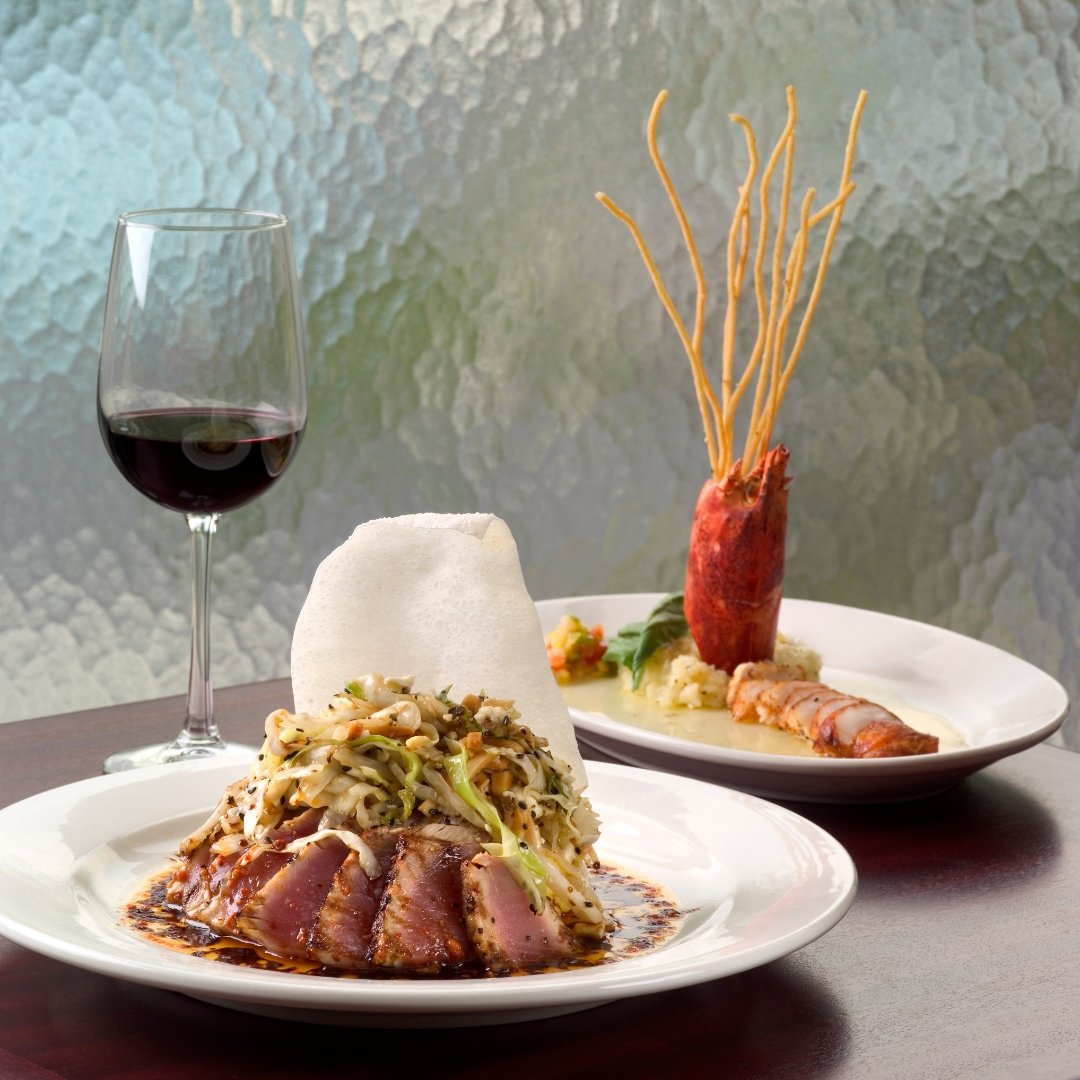
For those following a ketogenic diet, finding a suitable non-alcoholic wine can be challenging due to the often high sugar content in these beverages. However, several options cater to the low-carb requirements of keto while still offering a satisfying wine-like experience. The best non-alcoholic wines for keto are those with minimal residual sugar and carbohydrates, typically dry varieties that have undergone careful dealcoholization processes. These wines not only help maintain ketosis but also provide the pleasure of wine without the alcohol content. Let’s explore some top choices that balance flavor with keto-friendly nutritional profiles, allowing you to enjoy a glass of wine while adhering to your dietary goals.
What Are The Top 10 Takeaways?
Here are the top 10 takeaways from this blog:
- Non-alcoholic wines can be keto-friendly when chosen carefully, with some options containing zero sugar.
- The best non-alcoholic wines for keto diets are those with minimal residual sugar and carbohydrates, typically dry varieties.
- ONES Sparkling White, Rosé, and Red, as well as YOURS Non-Alcoholic California Red Blend, stand out as the most keto-friendly options due to their low or zero sugar content.
- Carb content in non-alcoholic wines varies significantly, ranging from 0g to about 0.74g per oz.
- You can drink non-alcoholic wine on a keto diet, but it’s important to choose low-carb options, control portions, and consider how it fits into your overall daily carb limit.
- Whether non-alcoholic wine kicks you out of ketosis depends on factors such as portion size, overall diet, metabolic state, and frequency of consumption.
- To maintain ketosis while enjoying non-alcoholic wine, strategies include tracking total daily carbs, choosing the lowest carb options, and pairing with high-fat, low-carb snacks.
- Non-alcoholic wines can be incorporated into keto-friendly recipes for cooking sauces, marinades, soups, and more.
- Benefits of non-alcoholic wine on keto include lower carb content, social inclusion, flavor variety, and potential antioxidant content.
- Creating keto-friendly non-alcoholic wine spritzers by mixing with sparkling water can further reduce carb content while providing a refreshing drink option.
When looking for the best non-alcoholic wine suitable for a keto diet, what are a few key factors to consider:
- Low carb content: Keto diets typically restrict carbohydrate intake, so the ideal option should have minimal carbs.
- No added sugars: Many non-alcoholic wines add sugar for flavor, which isn’t keto-friendly.
- Flavor profile: The wine should still offer a taste similar to traditional wine.
This wines are listed from the lowest grams of sugar per 100 mL to the highest in each category.
Sparkling Wines:
- ONES Sparkling White: 9.6 calories and 0g sugar per 100mL
- ONES Sparkling Rosé: 7.2 calories and 0g sugar per 100mL
- ONES Sparkling Red: 7.2 calories and 0g sugar per 100mL
- Sovi Sparkling Wine: 10 calories and 1.3g sugar per 100mL
- Joyus Sparkling White: 12.5 calories and 2.5g sugar per 100mL
- Joyus Sparkling Rose: 12.5 calories and 2.5g sugar per 100mL
- Noughty Sparkling Chardonnay: 14 calories and 2.9g sugar per 100mL
- Thomson & Scott Noughty Sparkling Chardonnay: 14.4 calories and 3.2g sugar per 100mL
- Château del ISH (Sparkling Rosé): 20 calories and 3.9g sugar per 100mL
- Edanvale Sparkling Cuvee Spanish: 24 calories and 3.8g sugar per 100mL
- Edenvale Sparkling Rose: 36 calories and 3.8g sugar per 100mL
- Oddbird Non-Alcoholic Sparkling Rosé: 19.4 calories and 4.4g sugar per 100mL
- Edenvale Non Alcoholic Rose: 21 calories and 4.6g sugar per 100mL
- Edenvale Sparkling Shiraz: 21 calories and 4.7g sugar per 100mL
- Edanvale Sparkling Cuvee: 23 calories and 5.1g sugar per 100mL
White Wines:
- The Expedition Series Non-Alc Verdejo Sauvignon Blanc: 24 calories and 0g sugar per 100mL
- Sovi Chenin Blanc: 10 calories and 1.3g sugar per 100mL
- Edenvale Semillon Sauvignon Blanc: 8 calories and 1.6g sugar per 100mL
- Giesen Sauvignon Blanc: 12.5 calories and 1.75g sugar per 100mL
- Brochet Zero Organic Sauvignon Blanc: 8 calories and 1.8g sugar per 100mL
- Noughty Blanc De-alcoholised White Wine: 17 calories and 2.0g sugar per 100mL
- Princess Alternativa Bianco Dry Non-Alcoholic White Wine: 17 calories and 2.6g sugar per 100mL
- Edanvale Pinot Gris: 13 calories and 2.8g sugar per 100mL
- Lautus Chardonnay: 20 calories and 2.8g sugar per 100mL
- Edenvale The Spanish Expedition Series Verdejo Sauvignon Blanc: 17 calories and 3.6g sugar per 100mL
- Edenvale Non-Alc Chardonnay: 18 calories and 3.9g sugar per 100mL
- Leitz Eins Zwei Non-Alc Riesling: 24 calories and 4.9g sugar per 100mL
- Edenvale Blanc de Blanc Premium Reserve: 23 calories and 5.2g sugar per 100mL
- Luminara Napa Valley Chardonnay Dealcoholized: 18 calories and 5.2g sugar per 100mL
- Le Petit Beret Virgin Sauvignon Blanc: 25 calories and 6.2g sugar per 100mL
Rosé Wines:
- Sovi Sparkling Rose: 10 calories and 1.3g sugar per 100mL
- Joyus Rose: 10 calories and 2g sugar per 100mL
- Noughty Non-Alcoholic Sparkling Rosé: 18 calories and 4g sugar per 100mL
- Wölffer Spring in a Bottle Non-Alcoholic Rosé: 24.5 calories and 4.8g sugar per 100mL
- Edenvale Rose: 22 calories and 5.5g sugar per 100mL
Red Wines:
- YOURS Non-Alcoholic California Red Blend: 6.8 calories and 0.68g sugar per 100mL
- Sovi Reserve Red: 10 calories and 1.3g sugar per 100mL
- Joyus Cabernet Sauvignon: 16.7 calories and 1.3g sugar per 100mL
- Alcohol Removed Cabernet Sauvignon: 13.3 calories and 1.3g sugar per 100mL
- Edenvale Non-Alcoholic Grenach Shiraz Mataro: 10 calories and 1.8g sugar per 100mL
- Naughty Red: 14 calories and 2.5g sugar per 100mL
- Lautus Non-Alcoholic Red: 12 calories and 3g sugar per 100mL
- Edenvale Non-Alcoholic Tempranillo Cabernet Sauvignon: 14 calories and 3g sugar per 100mL
- Luminara Red Blend: 20 calories and 3.2g sugar per 100mL
- Edenvale Shiraz: 17 calories and 3.8g sugar per 100mL
- Edenvale Cabernet Sauvignon: 18 calories and 3.9g sugar per 100mL
- Edenvale Premium Reserve Pinot Noir: 20 calories and 4.3g sugar per 100mL
- Leitz Eins-Zwei-Zero Pinot Noir: 21 calories and 4.9g sugar per 100mL
How Many Carbs Are In Non-Alcoholic Wine?
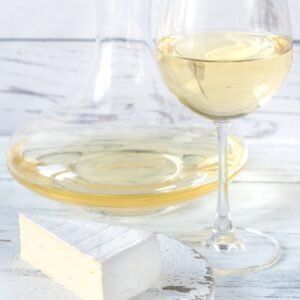
The carb content in non-alcoholic wine varies significantly between brands and types. Here’s a summary of the carb content (focusing on sugar, which is the main source of carbs in these wines).
Based on the information provided earlier:
Whites:
- ONES Sparkling White: 0g sugar per serving
- (Click this link for a 10% discount on ALL Ones Sparkling Wines)
- Giesen Sauvignon Blanc: Approximately 0.74g sugar per oz
- Joyus Sparkling White: Approximately 0.72g sugar per oz
Rosés:
- ONES Sparkling Rosé: 0g sugar per serving
- (Click this link for a 10% discount on ALL Ones Sparkling Wines)
- Joyus Rosé: Approximately 0.59g sugar per oz
- Joyus Sparkling Rosé: Approximately 0.72g sugar per oz
Reds:
- ONES Sparkling Red: 0g sugar per serving
- (Click this link for a 10% discount on ALL Ones Sparkling Wines)
- Sovi Reserve Red: Approximately 0.4g sugar per oz
- Joyus Cabernet Sauvignon: Approximately 0.4g sugar per oz
- YOURS Non-Alcoholic California Red Blend: 0.2g sugar per oz
As you can see, the carb content ranges from 0g to about 0.74g per oz, with most falling between 0.2g to 0.7g per oz.
Keep in mind:
- These figures represent sugar content, which is the primary source of carbs in wine, but total carb content might be slightly higher.
- Serving sizes vary, so always check the label for exact measurements.
- Even small amounts of carbs can add up, especially on a strict keto diet.
For those on a keto diet, the ONES Sparkling wines and the YOURS Red Blend appear to be the lowest-carb options. However, individual tolerance may vary, so it’s best to monitor your own response when incorporating these into your diet.
Can You Drink Non-Alcoholic Wine On Keto?
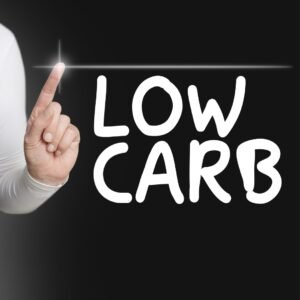
Yes, you can drink non-alcoholic wine on a keto diet, but with some important considerations:
Here are a few:
- Carb content: While non-alcoholic wines are generally lower in carbs than regular wines, they’re not carb-free. Some options, like ONES Sparkling White and Rosé, contain zero sugar and are more keto-friendly.
- Portion control: Even with low-carb options, it’s crucial to monitor your intake. A standard 5 oz serving of a low-carb non-alcoholic wine might contain 1-3g of carbs, which can fit into most keto diets.
- Individual tolerance: Everyone’s carb limit for maintaining ketosis is different. Some people can remain in ketosis with up to 50g of carbs per day, while others need to stay under 20g.
- Choose wisely: Opt for brands that specifically market themselves as low-carb or keto-friendly. The ONES and YOURS brands mentioned earlier are good examples.
- Read labels: Always check the nutritional information, as carb content can vary significantly between brands and even between different varieties from the same brand.
- Consider timing: Some people find consuming carbs earlier in the day is less likely to affect their ketosis.
- Balance with other meals: If you plan to enjoy non-alcoholic wine, you might need to be stricter with carbs in your other meals that day.
- Monitor ketosis: If you’re unsure how non-alcoholic wine affects you, use ketone testing strips or a blood ketone meter to check your ketone levels.
In summary, while you can include non-alcoholic wine in a keto diet, it’s important to choose low-carb options, control portions, and consider how it fits into your overall daily carb limit. For strict keto adherence, the zero-sugar options are your best bet.
Would you like more information on incorporating non-alcoholic wine into a keto lifestyle or tips for choosing the best options?
Does Non-Alcoholic Wine Kick You Out Of Ketosis?
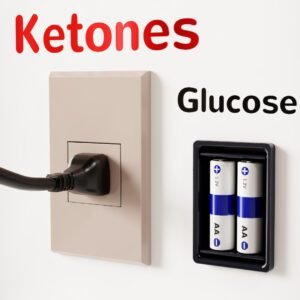
Whether non-alcoholic wine kicks you out of ketosis depends on several factors:
- Portion size: A small glass of low-carb non-alcoholic wine is less likely to affect ketosis than consuming larger amounts.
- Overall diet: If you’re strict with carbs in the rest of your diet, having some non-alcoholic wine is less likely to kick you out of ketosis.
- Metabolic state: Factors like exercise, stress, and sleep can influence how your body processes carbs.
- Frequency: Occasional consumption is less likely to have a significant impact compared to daily intake.
- Timing: Some find consuming carbs earlier in the day has less impact on ketosis.
For most people, consuming a moderate amount of low-carb non-alcoholic wine (like the zero-sugar options mentioned earlier) shouldn’t kick you out of ketosis. However, higher-carb varieties or larger quantities might.
To be sure:
- Choose the lowest carb options available
- Monitor your ketone levels if you’re concerned
- Start with small amounts and observe how your body responds
Remember, even if a particular non-alcoholic wine temporarily reduces your ketone levels, you’ll likely return to ketosis quickly if you resume your regular low-carb eating pattern.
How Do You Maintain Ketosis While Enjoying Non Alcoholic Wines?

To maintain ketosis while enjoying non-alcoholic wine, consider these additional strategies:
- Track total daily carbs: Include the carbs from your non-alcoholic wine in your daily carb count. Most keto dieters aim for 20-50g of net carbs per day.
- Choose the lowest carb options: Prioritize wines like ONES Sparkling White or Rosé with 0g sugar, or YOURS Non-Alcoholic California Red Blend with very low sugar content.
- Pair with fats: Consume your wine with high-fat, low-carb snacks like cheese or nuts. This can help slow the absorption of any carbs and minimize insulin spikes.
- Time your consumption: Consider having your wine earlier in the day or after a workout when your body may be more insulin sensitive.
- Stay hydrated: Drink plenty of water alongside your wine. This can help flush out any excess ketones and maintain hydration.
- Increase physical activity: If you plan to have non-alcoholic wine, consider adding some extra exercise to help use up any additional carbs.
- Intermittent fasting: Some people find that incorporating intermittent fasting helps maintain ketosis even with slightly higher carb intake.
- Use ketone supplements: While not necessary, some people use exogenous ketone supplements to help maintain ketosis when consuming slightly more carbs.
- Monitor ketones: Use ketone testing strips or a blood ketone meter to check how different wines affect your ketone levels.
- Be consistent: If you do enjoy non-alcoholic wine, try to be consistent with the amount and frequency. This helps your body adapt and maintain a steady state of ketosis.
- Balance with other meals: On days when you plan to have wine, be extra strict with carbs in your other meals.
- Listen to your body: Pay attention to how you feel. If you notice symptoms of leaving ketosis (increased hunger, decreased energy), you may need to adjust your intake.
Remember, the goal is to find a balance that allows you to enjoy these drinks while maintaining your keto lifestyle. Everyone’s body responds differently, so some experimentation may be necessary to find what works best for you.
How Do You Incorporate Keto Friendly Recipes with Non Alcoholic Wines?
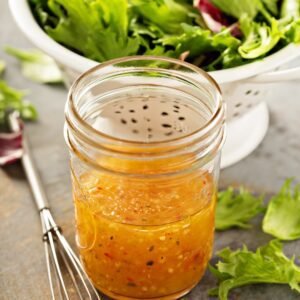
Incorporating keto-friendly non-alcoholic wines into recipes can add flavor and complexity to your dishes without significantly increasing carb content.
Here are some ideas:
- Cooking sauces:
- Use red non-alcoholic wine to make a rich reduction sauce for steak or lamb.
- Create a white wine sauce for chicken or fish dishes using a dry white non-alcoholic wine.
- Marinades:
- Add non-alcoholic red wine to marinades for beef or game meats.
- Use white non-alcoholic wine in marinades for chicken or pork.
- Soups and stews:
- Incorporate red non-alcoholic wine into beef stews or hearty vegetable soups.
- Use white non-alcoholic wine in seafood chowders or chicken soups.
- Braising:
- Braise tougher cuts of meat with non-alcoholic red wine for added flavor.
- Desserts:
- Use a splash of non-alcoholic sparkling wine in sugar-free gelatin desserts.
- Poach berries in non-alcoholic red wine with keto-friendly sweeteners.
- Vinaigrettes:
- Create a tangy salad dressing using white non-alcoholic wine as a base.
- Deglazing:
- Use non-alcoholic wine to deglaze pans after searing meats, creating flavorful pan sauces.
- Risotto-style dishes:
- Use non-alcoholic white wine in cauliflower “risotto” for added depth.
- Seafood dishes:
- Steam mussels or clams in non-alcoholic white wine with herbs and butter.
- Vegetable sides:
- Sauté mushrooms with non-alcoholic red wine for a rich side dish.
When cooking with non-alcoholic wine in keto recipes:
- Choose the driest, lowest-carb options available.
- Use sparingly – a little goes a long way for flavor.
- Reduce the wine to concentrate flavors and evaporate any remaining alcohol.
- Balance the wine’s acidity with fats like butter or olive oil.
- Taste as you go, adjusting seasoning as needed.
Remember, while cooking may reduce the carb content slightly, it’s still important to account for the carbs in your overall meal planning. Always use moderation and calculate the nutritional content of your recipes to ensure they fit within your keto macros
What Are The Benefits Of Non-Alcoholic Wine On Keto?

Non-alcoholic wine can offer several benefits for those following a keto diet:
- Lower carb alternative: Compared to regular wine, many non-alcoholic wines have fewer carbs, making it easier to stay within keto macros.
- Social inclusion: Allows participation in social drinking situations without consuming alcohol or excessive carbs.
- Flavor variety: Provides a flavorful alternative to water and other low-carb beverages.
- Cooking ingredient: Can be used in keto-friendly recipes to add depth and flavor without significant carbs.
- Antioxidants: Some non-alcoholic wines retain the antioxidants found in regular wine, such as resveratrol.
- Hydration: Generally contributes to hydration rather than dehydration associated with alcoholic beverages.
- No alcohol effects: Avoids the potential for alcohol to interfere with fat burning or ketosis.
- Better sleep: Unlike alcoholic wine, it doesn’t disrupt sleep patterns.
- Calorie control: Typically lower in calories than regular wine, supporting weight management goals.
- Liver health: Gives the liver a break from processing alcohol while still enjoying wine-like flavors.
- Consistent energy: Avoids the energy fluctuations that can come with alcohol consumption.
- Pregnancy-friendly: A safe option for pregnant women following a keto diet.
Remember, while these benefits exist, it’s still important to choose low-carb options and consume in moderation to maintain ketosis. The zero-sugar varieties like ONES Sparkling White or Rosé are particularly keto-friendly choices.
How To Make Keto-Friendly Non-Alcoholic Wine Spritzers?

Creating keto-friendly non-alcoholic wine spritzers is an excellent way to further reduce the carbs and sugar content of NA wines while enjoying a refreshing drink. The primary purpose of making these spritzers is indeed to dilute any remaining carbs and sugars in the non-alcoholic wine, making it even more keto-friendly.
Here’s how to make them:
Choose a low-carb base:
- Start with the lowest carb non-alcoholic wine available, such as ONES Sparkling White or Rosé (0g sugar) or YOURS Non-Alcoholic California Red Blend (0.2g sugar per oz).
Add carbonation:
- Use plain sparkling water or seltzer water (0 carbs) to add fizz and dilute the wine.
Flavor enhancers (optional):
- Add a splash of sugar-free flavoring or a squeeze of lemon/lime for extra taste without carbs.
Basic Keto NA Wine Spritzer Recipe:
- 3 oz low-carb non-alcoholic wine
- 3 oz sparkling water
- Ice cubes
- Optional: lemon slice or other keto-friendly garnish
Instructions:
- Fill a glass with ice.
- Pour in the non-alcoholic wine.
- Top with sparkling water.
- Stir gently and garnish if desired.
Variations:
- Berry Spritzer: Add a few muddled raspberries or strawberries (in moderation).
- Herb-infused: Add a sprig of fresh mint or basil.
- Citrus Twist: Add a splash of sugar-free citrus-flavored sparkling water instead of plain.
By creating spritzers, you’re effectively halving the already low carb content of the NA wine, making it even more suitable for a keto diet. This method allows you to enjoy a larger, more refreshing drink while minimizing carb intake.
Remember to always check the nutritional information of your specific non-alcoholic wine and adjust the ratios as needed to fit your personal keto macros.
more ideas for keto-friendly drink mixers or tips on incorporating these spritzers into your keto lifestyle?
What Are More Ideas For Keto-Friendly Drink Mixers or Tips On Incorporating These Spritzers Into Your Keto Lifestyle?
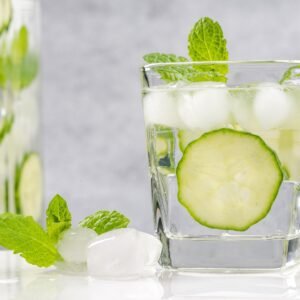
Here are more ideas for keto-friendly drink mixers and tips for incorporating non-alcoholic wine spritzers into your keto lifestyle:
Additional Keto-Friendly Mixers:
- Unsweetened coconut water (in moderation)
- Sugar-free tonic water
- Flavored sparkling water (ensure no added sugars)
- Unsweetened almond milk for creamy spritzers
- Sugar-free ginger beer for a spicy kick
- Cucumber water for a refreshing twist
Tips for Incorporating NA Wine Spritzers:
- Pre-plan your carbs: Factor in the carbs from your spritzer when planning your daily meals.
- Make a big batch: Prepare a larger quantity using a pitcher to have ready-made spritzers on hand.
- Freeze wine cubes: Pour non-alcoholic wine into ice cube trays and freeze. Use these instead of regular ice for a more concentrated flavor without dilution.
- Garnish creatively: Use keto-friendly options like a small piece of strawberry, a sprig of rosemary, or a slice of cucumber.
- Pair with keto snacks: Enjoy your spritzer with low-carb cheese, nuts, or vegetable crudités.
- Time it right: Consider having your spritzer earlier in the day to allow more time for your body to process any minimal carbs.
- Stay hydrated: Alternate between your spritzer and plain water to maintain hydration.
- Make it a mocktail: Use your spritzer as a base for more elaborate keto-friendly mocktails by adding sugar-free syrups or muddled herbs.
- Track your intake: Use a keto app to log your spritzers and ensure you’re staying within your carb limits.
- Experiment with ratios: Adjust the wine-to-mixer ratio to find your perfect balance of flavor and carb content.
- Consider electrolytes: If you’re using a lot of sparkling water, you might want to add a sugar-free electrolyte mix occasionally to maintain mineral balance.
- Make it seasonal: Adjust your spritzers based on the season – perhaps more red wine based in winter, whites in summer.
Remember, the key is moderation and being mindful of the overall carb content. These spritzers can be a great way to enjoy a refreshing drink while sticking to your keto goals.
Are There Any Keto-Certified Non-Alcoholic Wines?
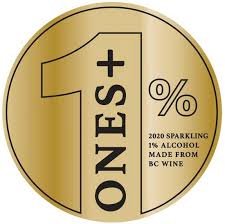
Technically I am unaware of officially “keto-certified” non alcoholic wines.
Here’s what you should know:
- ONES Sparkling Wines: While not officially certified, their Sparkling White, Sparkling Rosé, and Sparkling Red contain 0g of carbs and 0g of sugar per serving, making them very keto-friendly. You can sip these gems while heading into and remaining in ketosis.
- (Click this link for a 10% discount on ALL Ones Sparkling Wines)
- Surely Wines: They market their products as keto-friendly, with most varieties containing less than 3g of carbs per serving.
- Thomson & Scott Noughty: Their sparkling wines are often considered keto-friendly due to low sugar content, though not officially certified.
- Fre Alcohol-Removed Wines: While not certified, some of their varieties are relatively low in carbs and can fit into a keto diet in moderation.
- YOURS Non-Alcoholic California Red Blend: With only 0.2g of sugar per oz, it’s very keto-friendly, though not officially certified.
It’s important to note that “keto-certified” is not a standardized or regulated term. The suitability of an NA wine for a keto diet depends on its carb and sugar content and how it fits into your daily carb allowance.
When choosing a wine with no alcohol for a keto diet:
- Always check the nutrition label for carb and sugar content
- Look for wines that explicitly state they are sugar-free or very low in sugar
- Consider wines that market themselves as “keto-friendly” or “low-carb”
- Remember that even if not certified, many non-alcoholic wines can fit into a keto diet when consumed in moderation
As the keto market grows, more brands may seek official keto certification in the future. For now, focus on the nutritional content rather than certification when making your choice.
What Are The Best Non Alcoholic Wine Alternatives For Keto?
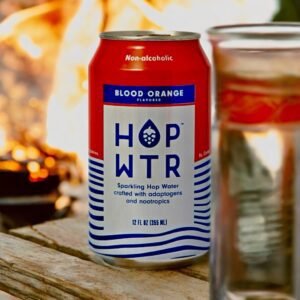 While I frequently savor low-sugar, non-alcoholic wines, I also appreciate a variety of wine alternatives.
While I frequently savor low-sugar, non-alcoholic wines, I also appreciate a variety of wine alternatives.
Let me share some of my favorites:
Wine Alternatives:
- Proxies: These non-alcoholic wine alternatives are praised for their complexity and food-pairing ability. They contain only 5-6g of sugar per serving with no added sugars, making them a good option for those watching their carb intake.
- Proxies Blanc Slate Non-Alcoholic Wine By Terrain At AnthropologieAnthropologie$32.00
- Hop Water: While not specifically a wine alternative, hop water is mentioned as a zero-carb, zero-sugar option that many keto dieters enjoy.
- Altina Drinks: This brand offers several low-sugar non-alcoholic wine alternatives, including Liberate Finger Lime Sauvignon Blanc, Liberate Kakadu Plum Rosé, and Sparkling Sansgria.
Tips for Keto-Friendly Non-Alcoholic Drinks:
- Read Labels: Look for options with 2.5g of sugar or less per 100ml, which is considered “low sugar” according to Food Standards Australia and NZ.
- Consider Spirits and Mixers: Non-alcoholic spirits like Tanqueray Zero or Gordon’s 0.0% Gin mixed with sugar-free tonic water or soda water can create keto-friendly mocktails.
- DIY Mocktails: Create your own low-carb mocktails using non-alcoholic spirits and sugar-free mixers. For example, a non-alcoholic Gin Rickey made with DHOS Gin Free, lime juice, and soda water is naturally low in carbs.
- Sparkling Water: For a simple, zero-carb option, consider sparkling mineral water like San Pellegrino, perhaps with a squeeze of lime or lemon.
How Does Non Alcoholic Wine Affect Weight Loss On Keto?

Apple Cider Vinegar Supports Weight Loss
Here’s how non-alcoholic wine affects weight loss:
Calorie Reduction: Non-alcoholic wines typically contain significantly fewer calories compared to their alcoholic counterparts. For example, a standard 175ml glass of 12% wine contains about 133 calories, while an equivalent serving of non-alcoholic wine like Noughty Chardonnay contains only 25 calories. This substantial calorie difference can contribute to weight loss when consistently chosen over regular wine.
Improved Sleep Quality: Alcohol consumption, even in moderate amounts, can disrupt sleep patterns and quality. By opting for non-alcoholic wine, you can enjoy better sleep, which is crucial for weight management. Quality sleep helps regulate hormones that control appetite, making it easier to maintain a healthy diet and resist cravings.
Enhanced Metabolism: Avoiding alcohol can lead to improved metabolic function. When you consume alcohol, your body prioritizes metabolizing it over other nutrients, potentially slowing down fat burning. By choosing non-alcoholic alternatives, you allow your body to maintain its normal metabolic processes, which can be beneficial for weight loss.
Better Food Choices: Alcohol often leads to poor food choices, such as late-night snacking or unhealthy takeaways. Non-alcoholic wine allows you to maintain better control over your eating habits, supporting your weight loss goals.
Hydration: Many non-alcoholic wines have a higher water content compared to alcoholic wines. Proper hydration is essential for weight loss as it can help control appetite and support metabolic functions.
Considerations: While non-alcoholic wine can be a helpful tool in weight management, it’s important to note:
- Some alcohol-free wines still contain calories and sugars, so moderation is key.
- Non-alcoholic wine should be part of a balanced diet and exercise regimen, not a standalone weight loss solution.
- The effectiveness of incorporating non-alcoholic wine into a weight loss plan can vary from person to person.
In conclusion, while non-alcoholic wine isn’t a direct weight loss aid, it can indirectly support weight loss efforts by reducing calorie intake, improving sleep quality, and maintaining better metabolic function. As with any dietary change, it’s best to consult with a healthcare professional or nutritionist to ensure it aligns with your specific weight loss goals and overall health needs.
What Keto Recipes Complement Zero Alcohol Wines Low In Sugar?
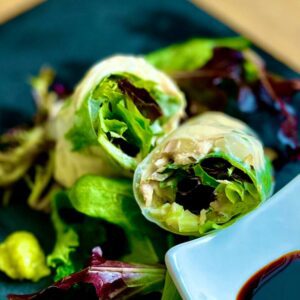
KETO TUNA SPRING ROLLS
There’s so many recipes on this website from which to choose. To stay within Keto goals, I’ve added dishes that are 110 net carbs or under per serving.
Here’s a few:
- Keto Low-Carb Tuna Spring Rolls
- Keto Low-Carb Bacon Wrapped Drumsticks
- Chicken Marsala (Heart Healthy)
- Bacon-Wrapped Salmon Asparagus (Heart Healthy)
- Smoked Salmon Rolls (Heart Healthy)
- Keto Low-Carb BBQ Pork
Sinless Sourdough™: Low Carb Sourdough For Home Baking

Two Simple Options:
- Starter + Membership Package – $19.99 (82% off, normally $113)
- Heritage Collection Starters – Individual starters from around the world
Both options include authentic low-carb starter shipped directly to your door!
What You Get With The Membership Package:
- Authentic low-carb starter shipped to your door
- Easy-to-follow video tutorials and recipe trainings for making:
- Artisan breads with crispy crust
- French baguettes
- Montreal-style bagels
- German pretzels
- Bread machine loaves
- Libraries with low carb lifestyle cheat sheets and e-cookbooks
- Community support from fellow bakers
- Recipes to use leftover starter (no waste!)
“After years of disappointing low-carb bread experiments, Sinless Sourdough changed everything!” — Maria T.
Use code: Sinless82 for 82% off
CLICK LINK HERE: 82% OFF TODAY FOR MEMBERSHIP
Global Heritage Collection Options:

Our special low-carb starters (only 1g net carbs vs. 8-10g in regular sourdough):
- 1849 San Francisco Gold Rush
- 1898 Yukon Gold Rush
- 1847 Oregon Trail
- 1000-Year-Old Italian Monastery
All purchases include instructions on reviving your starter.
CLICK LINK HERE: SINLESS STARTER SHOP
🍞 START YOUR LOW-CARB SOURDOUGH JOURNEY TODAY! 🍞
- UNUSUAL KETO INSTANT POT RECIPES FOR 2025 - April 27, 2025
- Boost Your Keto Diet with These Non-Alcoholic Wine Hacks - April 27, 2025
- 10 Unique & Healthy Mocktails You Need to Try - April 27, 2025


